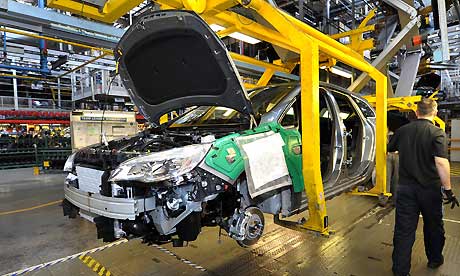On Thursday 23 June 2016 the EU referendum took place and the people of the United Kingdom voted to leave the European Union. Find more about the decision in this BBC News article.

But just how much has the motoring industry been affected by the vote on Thursday June 23rd though? To find out, used vans specialist Van Monster has investigated the immediate aftermath of Brexit on the sector:
The feeling among motorists regarding Brexit
Before we start looking at the markets and businesses which make up the UK’s motoring industry, we will begin by analysing the feeling felt by motorists themselves as Brexit takes shape.
A poll carried out by AA Populus has found that more than eight in ten drivers have expressed concerns about how Brexit will impact motoring across the country.
The survey, which involved almost 20,000 motorists and was conducted just three weeks after the referendum was held, also revealed that respondents were worried about matters like…
- Fuel prices rising (63 per cent concerned).
- Insurance being more expensive (57 per cent concerned).
- Poorer exchange rates for the Euro (56 per cent concerned).
- Medical care when travelling in the EU being set at a higher price (55 per cent concerned).
It is also interesting that 39 per cent of respondents expressed concerns that Brexit could cause an increase in delays at border crossings. Just weeks after the survey was carried out, drivers had to queue for up to 14 hours at the Port of Dover as a result of extra French security checks.
Looking into the AA Populus study, AA President Edmund King OBE acknowledged: “The AA did not take a stance on Brexit as we felt it was up to our members to make up their own minds.
However, this AA Populus poll of 20,000 drivers so soon after the referendum shows that many drivers are concerned about the potential for higher costs or more hassle travelling in Europe. Last weekend, thousands of drivers experienced horrific delays at Dover mainly due to lack of staff at French border and passport control.”
Mr King was keen to add though: “We trust that our Brexit negotiators will be working hard to ensure that UK drivers can still enjoy safe and relatively hassle-free driving across Europe in the future.”
The boost being felt in the used vehicle market
One aspect that motorists across the UK shouldn’t be concerned about is the used vehicle market, if the predictions industry experts are anything to go on.
According to a report by The Telegraph, vehicle manufacturers which operate on tight margins may consider shifting new cars away from the UK with the aim of getting better returns abroad.
This forecast isn’t all doom and gloom though. In fact, Chris Bosworth, the Strategy Director at Close Brothers Motor Finance, points out that industry data has already shown that there has been an increase in motorists looking for finance deals on used cars.
Mr Bosworth reflected: “This is a similar trend to the one in the immediate aftermath of the financial crash, where the used car market was boosted at the expense of the new car market.
“People have been buying new cars in the UK because manufacturers are subsidising deals so heavily that you’re getting ‘£99 down’ and 0pc finance offers. The weak pound could mean they won’t be able to afford that anymore.”
The uncertainty surrounding vehicle production across the UK
Let’s move on from the dealerships and into the factories making the vehicles — how is the future looking for them as a result of Brexit?
We will start with the good news. According to the Society of Motor Manufacturers and Traders (SMMT), car production across the UK clocked in at 158,641 vehicles in June 2016. This is an increase of more than ten per cent and means that the first six months of 2016 achieved a 16-year high for the country’s car production rate.
However, a survey carried out by the SMMT has revealed that 57 per cent of members are worried that Brexit will have a negative impact on their business. Only 8.3 per cent were confident that the effects will be positive.
The concerns of UK automotive business leaders include the following:
- 4 per cent are concerned about tariffs or other barriers being set up between the UK and the EU.
- 4 per cent are concerned that they will lose access to EU trade deals.
- 1 per cent are concerned about being bound by EU regulations where they will have no say.
- 7 per cent are concerned about the uncertainty that is hanging over EU workers currently based in the UK.
Mike Hawes, the Chief Executive of the SMMT, commented: “The latest increase in production output is the result of investment decisions made over a number of years, well before the referendum was even a prospect.
“These decisions were based on many factors but, primarily, on tariff-free access to the single market, economic stability and record levels of productivity from a highly skilled workforce. To ensure the sector’s continued growth, and with it the thousands of jobs it supports, these must be priorities in future negotiations.”
It is clear to see that the feelings about how the motoring industry will be affected by Brexit is mixed. Do you think the UK leaving the EU will be a good or bad thing for the sector? Let us know your thoughts in the comments below or by joining the conversation on our social media pages.








